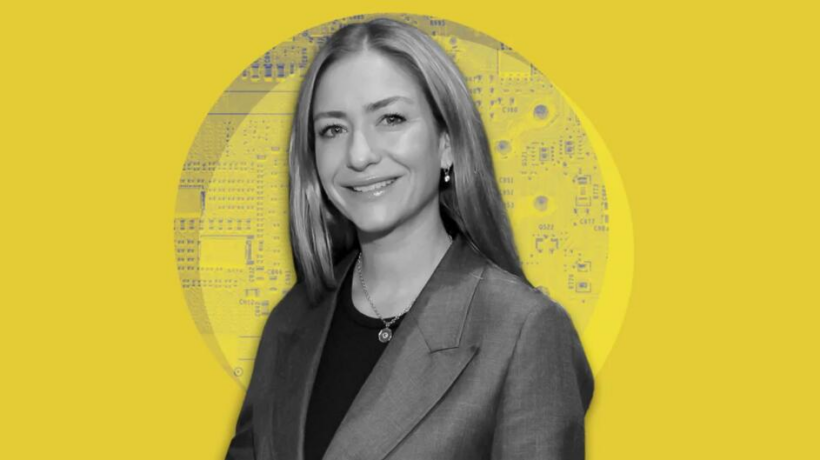It’s been almost a decade since the dating app Bumble—where women always make the first move—launched online. But according to founder Whitney Wolfe Herd, the company’s core mission hasn’t changed much.
“I wanted to give women control over their relationships, create a safer experience for them on the internet, and change the paradigm of how women felt they could show up in the world and in their relationships,” Wolfe Herd says. “And that’s exactly what we’re still doing today.”
On November 6, Bumble announced that Wolfe Herd would be stepping down from her previous role as CEO. The position is set to be filled by current Slack CEO Lidiane Jones, who will take over beginning on January 2. But Wolfe Herd isn’t distancing herself from the company. She’ll continue to serve a hands-on role in Bumble’s 10-year plan as its executive chair, contributing in areas like public policy and social impact. On this week’s Leaders in Innovation podcast, Wolfe Herd explains where the company is positioned now and how AI might transform it in the future.
When Wolfe Herd started Bumble in 2014, it was considered taboo for a woman to approach a man in a romantic setting. And while Bumble and other dating apps may have paved the way for women to take back their agency, ensuring that women’s voices are accounted for in the digital space is an ongoing process—especially as technology rapidly evolves. Wolfe Herd created Bumble because “the internet was never engineered for women,” and she believes that their unique experiences were overlooked during the mobile app explosion of the 2010s. Now, she says AI could be headed down a similar path if programmers, users, and data sets skew male.
“This is where we have to engage women,” Wolfe Herd says. “We have to get women doctors involved, we have to get women scientists involved, we have to get women’s studies involved. We have to have women controlling, to some degree, the input. I do believe that [AI] can be super powerful to improve women’s lives if we engage properly right now.”
Bumble is taking several steps to do just that. In 2019, the app launched an AI-powered lewd image detector, which operates at 99% efficacy rates and has even led to several states passing legislation against “cyberflashing.” For Wolfe Herd, that’s just one example of “an AI initiative through the feminine gaze.”
From a matching standpoint, Wolfe Herd thinks that AI has the potential to identify better romantic pairings and even prevent toxic relationships before they happen.
“Our matching, it’s come a long way, but why I am so excited about the future of this business is I think it can improve tenfold,” Wolfe Herd says. “AI is a blessing from above when it comes to matching algorithms. There are so many low hanging fruits here just today alone. Clip technology. Using image detection. How can we extrapolate personality from what we’re seeing in a photo and explain to you explicitly why this person would be good or bad for you?”
Right now, Wolfe Herd says AI technology is still in its infancy. But down the road, she sees a future where Bumble’s AI tools could help users find their ideal match in only a couple of swipes. She even hinted at the possibility of a virtual personal assistant within the app, who might be able to further customize the experience. Ultimately, though, she thinks that these advancements can only truly work if they’re built on a foundation of trust from users—and a genuine desire from programmers to make a difference.
“If we can use AI, our brand, our customer database, and the technology we have to help you understand that you’re worth it, you matter, and it’s okay that this is a journey, not a destination—then it makes the whole process a lot more enjoyable,” Wolfe Herd says.







